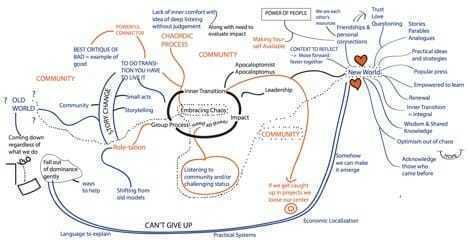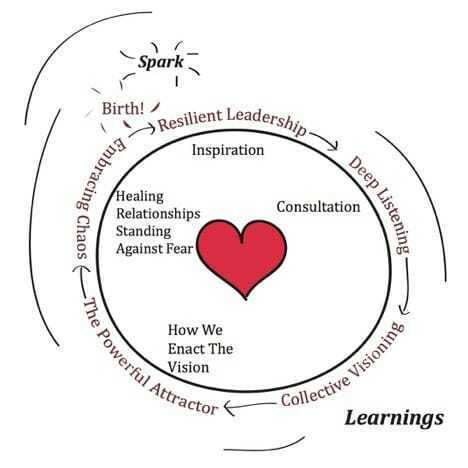Adaptation of a structured story-dialogue method for action research with social movement activist
 Few people can resist a good story. Stories are about people and what they do. They’re how we think, and how we make meaning out of life experience. They offer emotion, perspective, and reflection, and touch us in ways that more abstract theoretical arguments simply cannot. Stories may also be triggers or starting points for deeper analysis and understanding of the work participants are engaged in together. Stories allow us to go deeper into the tensions embedded in practice, and redirect our energy towards developing solutions, insights, and more skillful practice. Dialogue and story-telling are essential elements of many qualitative methodologies, where the emphasis is on ‘getting participants to tell their stories’ to the researcher. But what if that process were opened up so that community leaders and social movement activists told their stories to each other? And what if a process could be created that would ‘seed’ those stories with findings from previous research, and carry participants through a process that enabled activists and movement leaders to reflect upon and distill key lessons learned (aka engage in on-the-fly analysis), as part of a multi-day retreat?
Few people can resist a good story. Stories are about people and what they do. They’re how we think, and how we make meaning out of life experience. They offer emotion, perspective, and reflection, and touch us in ways that more abstract theoretical arguments simply cannot. Stories may also be triggers or starting points for deeper analysis and understanding of the work participants are engaged in together. Stories allow us to go deeper into the tensions embedded in practice, and redirect our energy towards developing solutions, insights, and more skillful practice. Dialogue and story-telling are essential elements of many qualitative methodologies, where the emphasis is on ‘getting participants to tell their stories’ to the researcher. But what if that process were opened up so that community leaders and social movement activists told their stories to each other? And what if a process could be created that would ‘seed’ those stories with findings from previous research, and carry participants through a process that enabled activists and movement leaders to reflect upon and distill key lessons learned (aka engage in on-the-fly analysis), as part of a multi-day retreat?
This paper reports on the adaptation of a structured story-dialogue method for research with social movement activists undertaken in the form of a series of regional weekend workshops animated by researchers and attended by Transition movement leaders and participants from multiple locales, as part of a larger study (www.transitionemergingstudy.ca). We draw upon participant observation, animator reflections, research team meetings, participant feedback, as well as workshop materials, in relation to two different adaptations of Labonte & Feather’s original formulation (1996) and subsequent reflections (2011), setting this in the context of a broader literature on structured story-dialogue methods with groups. The potential of structured story-dialogue methods for research on, with and for social movements is highlighted.
Blog post by Blake D Poland, Roxanne Cohen
We invite you to learn more about this experience by reading this article HERE. Free 30-day access is available for this article beginning 15 January 2018.
After you’ve had a chance to read this piece, please share your thoughts, ideas, or experiences with our community in the comments below so we can continue this discussion!
- Making Public Deliberations Inclusive with Mixed Methods AR - October 26, 2020
- Participatory action research with Aboriginal Elders: Ngulluk Koolunga Ngulluk Koort project - October 12, 2020
- Bringing the relational self to ART: Interview with Dr. Yvonne Skipper - October 1, 2020
